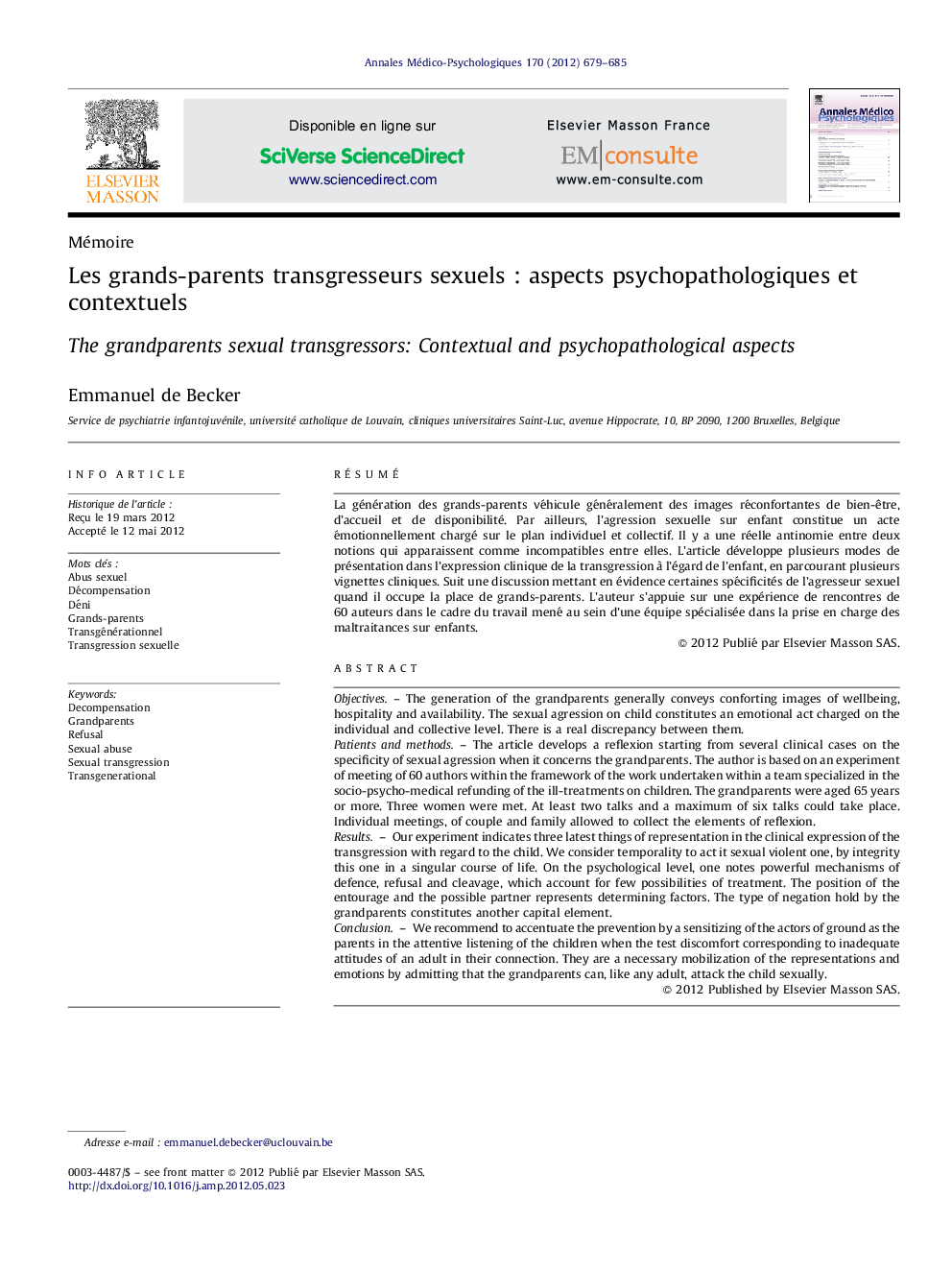| Article ID | Journal | Published Year | Pages | File Type |
|---|---|---|---|---|
| 314908 | Annales Mdico-psychologiques, revue psychiatrique | 2012 | 7 Pages |
RésuméLa génération des grands-parents véhicule généralement des images réconfortantes de bien-être, d’accueil et de disponibilité. Par ailleurs, l’agression sexuelle sur enfant constitue un acte émotionnellement chargé sur le plan individuel et collectif. Il y a une réelle antinomie entre deux notions qui apparaissent comme incompatibles entre elles. L’article développe plusieurs modes de présentation dans l’expression clinique de la transgression à l’égard de l’enfant, en parcourant plusieurs vignettes cliniques. Suit une discussion mettant en évidence certaines spécificités de l’agresseur sexuel quand il occupe la place de grands-parents. L’auteur s’appuie sur une expérience de rencontres de 60 auteurs dans le cadre du travail mené au sein d’une équipe spécialisée dans la prise en charge des maltraitances sur enfants.
ObjectivesThe generation of the grandparents generally conveys conforting images of wellbeing, hospitality and availability. The sexual agression on child constitutes an emotional act charged on the individual and collective level. There is a real discrepancy between them.Patients and methodsThe article develops a reflexion starting from several clinical cases on the specificity of sexual agression when it concerns the grandparents. The author is based on an experiment of meeting of 60 authors within the framework of the work undertaken within a team specialized in the socio-psycho-medical refunding of the ill-treatments on children. The grandparents were aged 65 years or more. Three women were met. At least two talks and a maximum of six talks could take place. Individual meetings, of couple and family allowed to collect the elements of reflexion.ResultsOur experiment indicates three latest things of representation in the clinical expression of the transgression with regard to the child. We consider temporality to act it sexual violent one, by integrity this one in a singular course of life. On the psychological level, one notes powerful mechanisms of defence, refusal and cleavage, which account for few possibilities of treatment. The position of the entourage and the possible partner represents determining factors. The type of negation hold by the grandparents constitutes another capital element.ConclusionWe recommend to accentuate the prevention by a sensitizing of the actors of ground as the parents in the attentive listening of the children when the test discomfort corresponding to inadequate attitudes of an adult in their connection. They are a necessary mobilization of the representations and emotions by admitting that the grandparents can, like any adult, attack the child sexually.
